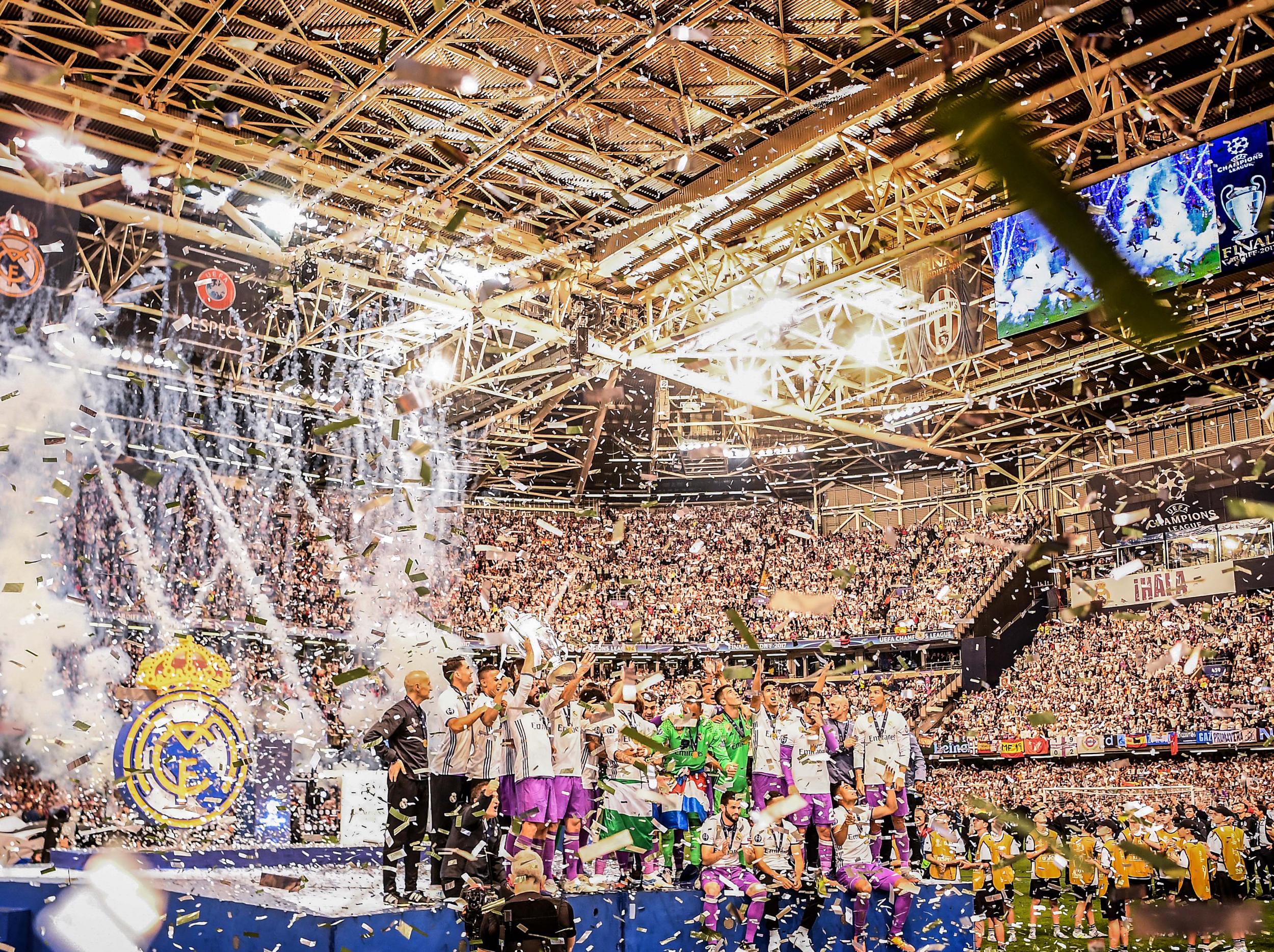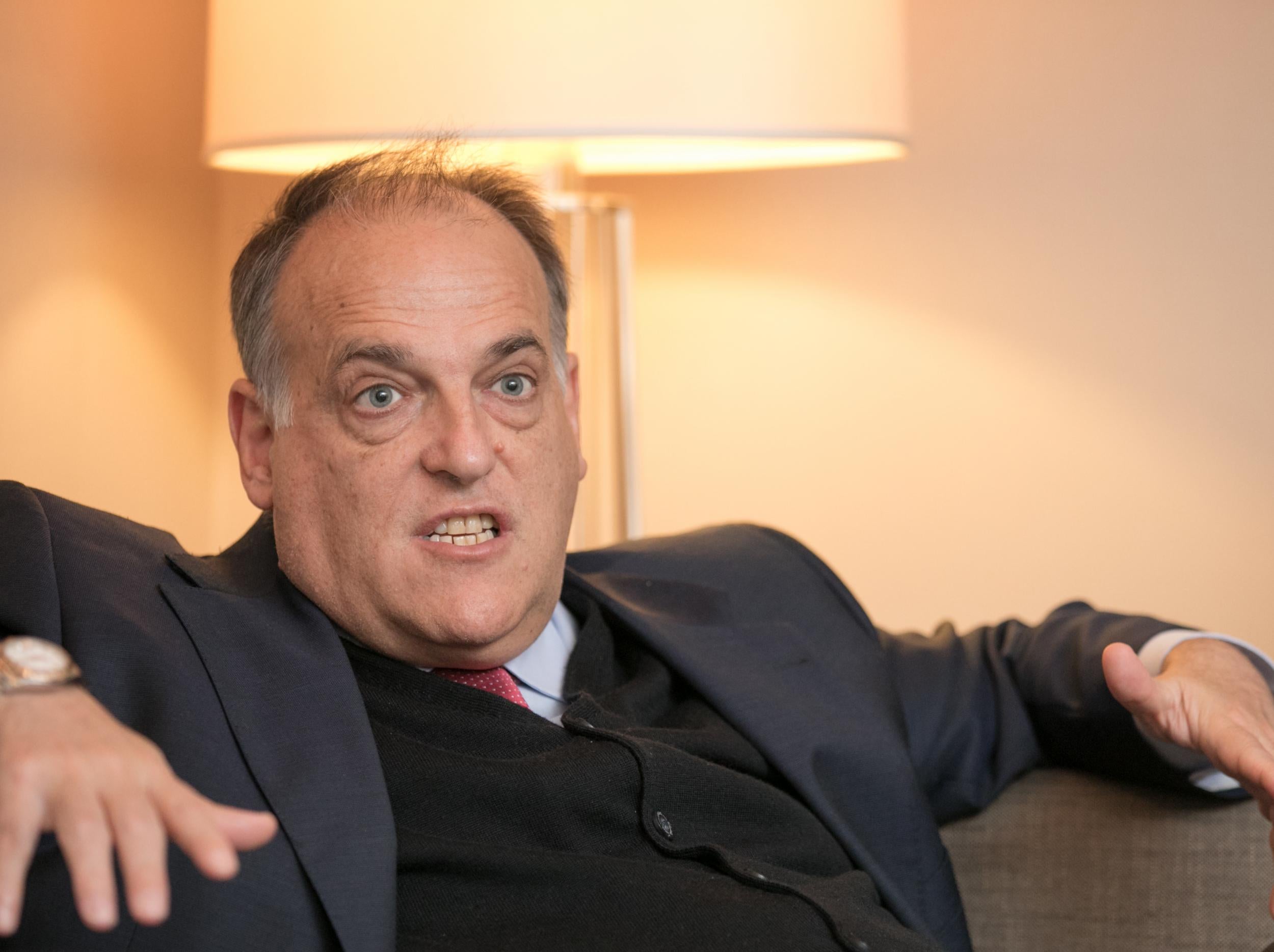Fifa and Uefa set for bitter Club World Cup showdown that will decide the future of football
The 2021 Club World Cup tournament in China may do much, much more than simply crown the new global champions. It will also fundamentally change the footballing world

Your support helps us to tell the story
From reproductive rights to climate change to Big Tech, The Independent is on the ground when the story is developing. Whether it's investigating the financials of Elon Musk's pro-Trump PAC or producing our latest documentary, 'The A Word', which shines a light on the American women fighting for reproductive rights, we know how important it is to parse out the facts from the messaging.
At such a critical moment in US history, we need reporters on the ground. Your donation allows us to keep sending journalists to speak to both sides of the story.
The Independent is trusted by Americans across the entire political spectrum. And unlike many other quality news outlets, we choose not to lock Americans out of our reporting and analysis with paywalls. We believe quality journalism should be available to everyone, paid for by those who can afford it.
Your support makes all the difference.It is a plan that is creating intrigue in some football boardrooms, and creating real concern in many more, but hasn’t yet fostered much discussion among the sport’s wider world.
It should, because it has the potential to become the game’s most disruptive influence, and test its very parameters to cause a huge split. This is what is coming down the road – or will certainly involve a lot of environmentally questionable long-haul flights.
This is Fifa’s controversial idea for an expanded Club World Cup, to take place in China in summer 2021. The current plan is for it to involve 24 clubs, from seven different continents, and offer an awful lot of prize money.
That means it may do much more than just crown the new champions of the football world. It could well change the football world.
That’s how far-reaching it could be. Spanish league president Javier Tebas is the first to really start speaking out against this, and describes it as a “threat” to the sport’s “eco-system”, a “risk”, and like “building castles in the sky”.
The 57-year-old was obviously speaking from a certain amount of self-interest, given he said all this at a press conference to launch his own competition’s new La Liga TV platform, but they are views shared right across the game and right up to the top of Uefa.
The concerns are that, as well as bringing together all of the sport’s super clubs, it will bring together all of the sport’s major problems: who controls it; who it serves; political influence; financial disparity and a calendar that is already being stretched to the limit.
It is that last point that has already caused the first problem with this Club World Cup, and raised the first big questions of Fifa’s level of foresight in this regard. The plans have already seen the African Nations moved back to January-February, creating all manner of headaches for managers.
It has also left Fifa open to accusations of unthinking hypocrisy, since they have effectively gone back on the reasons for moving the tournament to the summer in the first place. The African Nations was initially switched to streamline the calendar and spare complaints about clubs losing players halfway through a season, while also affecting their physical conditioning. Fifa are now trying to make space in that same calendar for an even bigger event, and that at a point when everyone else is trying to work out a schedule to suit the global body’s ill-thought-out winter World Cup in Qatar.
Whatever about being unable to make it up, it’s very difficult to make a working calendar for it.
This, of course, at a time when managers are similarly complaining about players being pushed to physical breaking point; when there are fair complaints the calendar actually needs to be reduced.
Worse, it could also push the game’s very financial structure to breaking point. This is what Tebas means about its eco-system and the established structures of national leagues and continental competitions. The “balance” of that eco-system is already under threat by huge disparities in financial revenue, which have created a strand of about 11 ‘super-clubs’, that have started to erode the very competitiveness of the sport. This can be seen in the record points returns so many of the wealthiest clubs have enjoyed in the last few years, as well as the number of domestic titles that are being retained again and again. It is creating a fabric-tearing financial stretch in football.
And Fifa’s plan in the midst of this? It is not to introduce greater re-distribution. It is to send even more money towards the super-clubs. And mind-boggling figures at that. That is what it’s going to take to actually make this event happen, and what a lot of it is about.
With the major European clubs someway resistant to this Club World Cup – which absolutely needs their participation to succeed – the only possible solution is to offer more money than they can say no to. This is effectively the plan, especially with talk of so many super-wealthy backers.
If the clubs are offered starting amounts of £40m or £50m, they could earn a season’s worth of Champions League earnings in a single summer. That could have a more damaging effect on the game than the way Uefa’s elite competition has created a series of singularly dominant title-winners from Europe’s lower-ranked leagues, out of merely getting to the qualifying stages.
It could have a completely destructive effect on the continents that don’t see anywhere near the level of Uefa’s money.

“I think it’s striking, a few weeks ago, Fifa was talking about how much would be paid if they went to China,” Tebas said. “They have been talking about redistribution of revenue, but haven’t discussed the impact this would have in different countries.
Let’s imagine the two teams from Argentina, it’s £40m or £50m from a tournament such as this, this would have an impact on the Argentinean Super League. So we should first look at how it’s going to impact this. That’s why I am so surprised about this. They haven’t looked at the consequences of these tournaments.
“When there’s going to be a problem with the [2022] World Cup [and the calendar], they’re going to organise a new competition. And I think that’s not the way forward.
“I am very critical of the Club World Cup, and how this whole process has come out.”
It also provokes the most serious questions of all, about the processes at the very top of the game.
Where is the consideration for the impact of all this? And what exactly does Fifa see its role as? Is there actual motivation to this beyond the global body envying how much Uefa make from the Champions League and looking to replicate it, as well increasing their revenues beyond the quadrennial main World Cup?
It is why Tebas is right to say that it feels like this marks a point where Fifa “stopped being regulators and organisers”, not to mention safeguards of the game. It is difficult not to think there is an element of competitiveness with Uefa, and their flagship club event. They want a piece of that Champions League money.

For many involved, it points to an issue with Fifa presidents, as well as one significant difference between Gianni Infantino and Sepp Blatter. The argument is that these figures don’t just see themselves as “managing” the sport – and viewing everything in a collective fashion – but want to ‘leave a legacy’. And an individual legacy at that.
While Blatter obviously had many faults, those who know him say there was at least a certain “romance” in his outlook, in that he effectively wanted to win a Nobel Peace Prize through football’s potential for bringing the planet together. Infantino is seen as much more interested in bringing money in.
And that has fostered some questionable links that he hasn’t yet offered answers to. There is already the fact that, following on from World Cups in Russia and Qatar, this expanded Club World Cup is set to take place in yet another country with a much-criticised human rights record in China.
To add to that, it is commonly believed that at least one of the backers for this event are Saudi Arabian interests.
Fifa would thereby be facilitating the use of football for sportswashing, rather than actually scrutinising and limiting it.
It doesn’t mean the rest of the football world is going to so easily facilitate this competition, though. Tebas has already talked about how Uefa’s Ceferin is up for “a confrontation”.

“If Ceferin defends European football as I have seen with national League and championships in balance, which is the current trend, I welcome this clash; this confrontation.
“The Spanish League supports Ceferin. An organisation like Fifa is supposed to be a regulatory body. They draft the different calendars and when we need to play. Sadly, from organising World Cups, they are talking about Club World Cups and having that every two years.
“That is not an option because it would change the status quo. This can’t happen. This sort of confrontation will never harm us if it goes along the path Ceferin is trying to defend.”
It could prove one of football’s biggest fights. It is certainly going to be one of its biggest issues.
Join our commenting forum
Join thought-provoking conversations, follow other Independent readers and see their replies
Comments